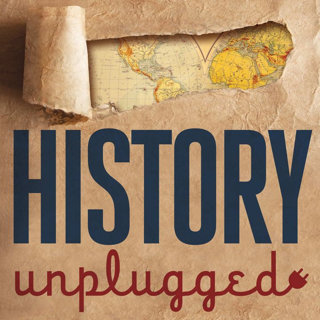
Pistol Duels Existed Across the 19th-Century World, But Only the Chaos of the American West Produced Gunfighters
To understand American history and its deep-seated relationship with violence, we must look to the last three decades of the 1800s in the American West, which had the highest murder rate per capita in American history. And it all boils down to one place: Texas. Texas was born in violence, on two fronts, with Mexico to the south and the Comanche to the north, and the invention of the Colt revolver only made the area wilder and less orderly. Across the nineteenth-century frontier defending one’s honor and reputation often resulted in duels and bitter feuds. After the cattle business boom, this sensation spilled into the greater West from Arizona to Wyoming to Kansas. The trigger-happy assortment of rustlers, hustlers, gamblers, and freelance lawmen, and their desire to defend their honor caught the eye of newspapers, igniting a firestorm of mythmaking. The word “gun-man” first appears in a newspaper in 1874, followed by an explosion of Western biographies and memoirs in the 1920s. 1940s-1950s Hollywood reimagined these gunfighters as leading men, introducing Billy the Kid and Wyatt Earp to a new generation. Today’s guest is Bryan Burrough, author of “The Gunfighters: How Texas Made the West Wild.” We explore how only in the American West could gunfighters exist, and what led to the death of this unique period in time.See omnystudio.com/listener for privacy information.
26 Kesä 51min

Rome Definitively Eclipsed Greece in 197 BC By Making the Alexandrian Phalanx/Cavalry Obsolete
The battle of Cynoscephalae represents a key moment in the history of the Greco-Roman world. In this one battle the Macedonian hold over mainland Greece was broken, with the Roman Republic rising in its place as the pre-eminent power in the Greek East. At Cynoscephalae, the proud Macedonian kingdom of Antigonid monarch Philip V was humbled, its army shattered. Yet the battle, and campaign leading up to it, was hard fought and protracted. Philip V had defied Rome and its allies in the First Macedonian War and was poised to do so again, with the pike phalanx continuing to be a daunting opponent for the Roman legionaries.See omnystudio.com/listener for privacy information.
24 Kesä 46min

Exploring the Wreckage of the Britannic (the Titanic’s Sister Ship) and Discovering Why It Sunk in 50 Minutes
The RMS Titanic is history’s most famous shipwreck, but it wasn’t the only ship of its kind. The White Star Line built two other nearly identical vessels: The RMS Olympic and Britannic. The Olympic carried passengers until 1935 and can be visited today. The Brittanic sank only four years after her sister ship the Titanic off the Greek island of Kea in the Aegean Sea like due to striking a German mine while serving as a hospital ship during World War One. It sank in only 55 minutes (compared to 160 minutes for the Titanic) but only 30 of the 1066 passengers due to better lifeboat procedures, warmer waters, and being closer to land. What While the wreck of the Titanic is 2 miles below the surface and rapidly deteriorating, the Britannic is much more accessible (only 400ft down) and remains largely intact. It’s in “shallow” enough waters that divers can reach it, although submersibles do most of the investigation work. What can the ship tell us about the sinking of the Titanic, the lives of its passengers in the early 20th century, and whether something nefarious happened that caused it to sink, as some claim (like German sabotage). These are the questions that today’s guest, Simon Mills, tried to answer when bought the wreck of the Britannic in 1996. He is a maritime historian who has coordinated multiple expeditions into the underwater wreckage and most recently finished extensive internal surveys in 2021 and 2023. He’s also the author of the new book Inside the Britannic which is the sum of decades of work covering every inch of the ship. We discuss exactly how this ship sunk, what happened during the frantic 50 minutes of its sinking, what happened to the survivors, and other unanswered mysteries.See omnystudio.com/listener for privacy information.
19 Kesä 48min

Did Tariffs Make America a Manufacturing Powerhouse Or Trigger Economic Misery and Stifle Global Trade?
At a time when debates over tariffs, regulation, and the scope of government are back at center stage. Is this time in American history unprecedented, or can we find parallels in the past? For example, has trade “hollowed out” U.S. manufacturing—or have fact tariffs like the Corn Laws in Britain hurt working-class families the most? Was the Great Depression a failure of capitalism—rather than a policy crisis worsened by poor monetary responses and overreach? Today’s guest is Phil Gramm, a former U.S. Senator and author of “The Triumph of Economic Freedom.” We look at five periods of American history—the Industrial Revolution, Progressive Era, Great Depression, decline of America’s postwar preeminence in world trade, and the Great Recession—along with the existing levels of income inequality and poverty, leads many to believe in expanding government in American life. Gramm argues that the evidence points to a contrary verdict: government interference and failed policies pose the most significant threat to economic freedom.See omnystudio.com/listener for privacy information.
17 Kesä 44min

Alan Pinkerton: The Private Detective Who Saved Lincoln’s Life and Built America’s Contract Security State
Alan Pinkerton is perhaps the most over-achieving barrel-maker who ever lived. After practicing his trade in rural Illinois for a few years in the 1850s, the Scottish immigrant busted up a counterfeiting ring, which got the attention of Chicago’s police department, offering him a job as a detective. From here he worked as an intelligence agent in the Civil War (preventing an assassination attempt on Lincoln’s life), then pursued high-profile outlaws like Butch Cassidy and the Sundance Kid, and protected scabs in the Homestead lockout, for which his private detective agency became notorious. Pinkerton has been an enduring source of fascination since the nineteenth century. But the details of his impact, business empire, and private life have been incomplete. Today’s guest is Rhodri Jeffreys-Jones, author of “Allan Pinkerton: America's Legendary Detective and the Birth of Private Security.” We discuss the accomplishments, contradictions, controversies, and legacies of the founder of the Pinkerton National Detective Agency.See omnystudio.com/listener for privacy information.
12 Kesä 50min

MacArthur’s Plans to Drop 50 Nuclear Bombs During the Korean War
The Korean War came dangerously close to going nuclear, and if would have if Gen. Douglas MacArthur had gotten his way. He proposed using 30 to 50 nuclear primarily to targeting air bases, depots, and supply lines across the neck of Manchuria to create a radioactive barrier and halt Chinese and North Korean advances. This would have killed millions and almost definitely brought the Soviet Union into full-scale war against the United States. In this episode, we explore the Korean War’s pivotal role in shaping the Cold War, diving into the tense standoff between East and West. The conflict erupted with North Korea’s 1950 invasion, prompting a daring counteroffensive by MacArthur, whose strategic overreach drew Communist China into the fray. The rapid escalation pushed the U.S. to contemplate using nuclear weapons, a decision that could have reshaped the 20th century. To explore this is today’s guest, Robert Lyman, author of “Korea: War Without End.” The Korean War was not planned as a Communist offensive against the West. In turn, the East did not understand the principle at the core of the Western response to Kim Il-sung’s aggression, namely a refusal to appease an aggressor, the key mistake the West considered to be at the heart of the rise of Nazi Germany and militaristic Japan in the 1930s.See omnystudio.com/listener for privacy information.
10 Kesä 50min

The Many Ways That Rome Never Fell and Lives On Today
Rome’s Western Empire may have fallen 1,600 years ago, but its cultural impact has a radioactive half-life that would make xenon jealous. Over a billion people speak Latin (or at least a Latin-derived language). Governments around the world self-consciously copy Roman buildings and create governments that copy the imperial senate. Every self-aggrandizing leader has compared himself to Caesar, including those with a strong claim (Charlemagne and Napoleon) and those with a weaker one (Idi Amin and Muammer Gaddafi). But what if the Roman Empire never truly fell? This is the perspective of today’s guest, Aldo Cazzullo, author of “The Neverending Empire: The Infinite Impact of Ancient Rome. Rome’s influence is not just a relic of history—it’s the foundation of the modern West and nowhere is that more evident than in the United States. While many political empires throughout history have presented themselves as the true heirs of Rome, Cazzullo contends that it’s the US, that most resembles the Roman Empire. It’s an angle with which to view America’s story/where it’s heading and most importantly, what we can learn to ensure that we can look forward to another 3000 years.See omnystudio.com/listener for privacy information.
5 Kesä 37min

Hooves of History: How Horses Created Ancient Warfare, Built the Silk Road, and Became the Dividing Line Between Nobleman and Peasant
In order to become rich, powerful, and prestigious in the pre-modern world, nothing mattered more than horses. They were the fundamental unit of warfare, enabling cavalry charges, and logistical support. They facilitated the creation of the Silk Road (which could arguably be called the “Horse Road”) since China largely built it to enable the purchase of millions of horses to fight its nomadic neighbors to the north. The term "caballero," meaning a gentleman or knight in Spanish, derived from the Latin "caballus" (horse), reflecting how wealth, status, and the skilled ability to ride a horse defined chivalric ideals in medieval society. From the windswept Eurasian steppe to the royal stables of Persia and the warpaths of Genghis Khan, today’s guest, David Chaffetz, author of Raiders, Rulers, and Traders traces the story of how horses changed the world—not just in warfare, but in statecraft, commerce, and culture. Chaffetz makes the case that the so-called “Silk Road” might more accurately be remembered as the Horse Road. Horse-driven mobility shaped empires from Assyria and the Achaemenids to the Mughals and the Soviets. Just as we rely on the Internet today, ancient societies depended on the horse as a transformative technology that shaped everything from warfare to governance.See omnystudio.com/listener for privacy information.
3 Kesä 44min






















